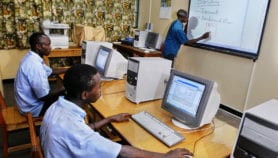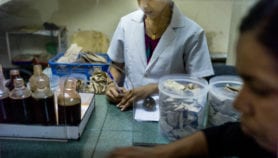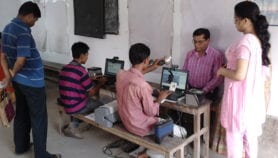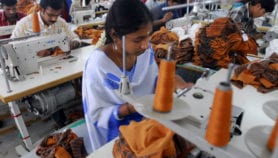Send to a friend
The details you provide on this page will not be used to send unsolicited email, and will not be sold to a 3rd party. See privacy policy.
[CHENNAI/NEW DELHI] Indian scientists are calling for an office of research integrity that could detect, investigate and punish proven scientific misconduct in the country.
The office would be part of a national policy on academic ethics which the group wants to see in place to cater for the country’s rapidly expanding scientific community and output.
At a meeting last week (15–16 July), scientists also said they want institutes to appoint ‘ethics officers’ and undergraduate studies to include mandatory ethics modules. The meeting was organised by the Institute of Mathematical Sciences and the Forum for Global Knowledge Sharing, an inter-disciplinary global forum for scientists.
The calls follow a series of plagiarism charges hitting Indian scientists. The most recent followed last year’s report by the Indian science academies which concluded that genetically modified eggplant, Bt brinjal, was safe for consumption. The report was found to contain unreferenced text from a pro-biotechnology publication of India’s Department of Biotechnology.
Another example was a retraction of research papers submitted by the prestigious Indian Institute of Technology to Biotechnology Advances in 2010.
At the meeting, T. A. Abinandanan, professor of materials engineering at the Indian Institute of Science (IISc), Bangalore, presented data showing a steep increase in the number of international journals in biomedical sciences retracting studies by Indian authors between 2001 and 2010. Of 103,000 published papers 70 were retracted, including 45 cases of misconduct such as fabrication of data, or plagiarism, including re-use of an author’s own, earlier work. The average retraction rate was 68 per 100,000 papers.
For comparison, he cited American research into biomedical science papers published through PubMed, showing that retraction rates were 17 globally; 48 in China; 16 in Japan; 14 in United States; and 13 in United Kingdom.
Abinandanan said that most the cases of misconduct in India are due to plagiarism — the retracted papers are often first published in lower profile journals where authors tried to "fly under the radar".
He said that plagiarism cases may decline in the coming years, due to increasing use of plagiarism-detecting software.
Padmanabhan Balaram, director of IISc and editor of Current Science, published by the Indian Academy of Sciences, said that fabrication and falsification of data in India is "rare and more sophisticated".
Participants also criticised the lack of institutional transparency and scientific institutes’ unwillingness to investigate scientific misconduct, make their findings public, and take action.
Sunil Mukhi, theoretical physicist at the Tata Institute of Fundamental Research, said: "Ethics depend on the quality of leadership of science institutions. Acceptance of misconduct like plagiarism is very high, with institutions considering the perpetrator as part of family."













